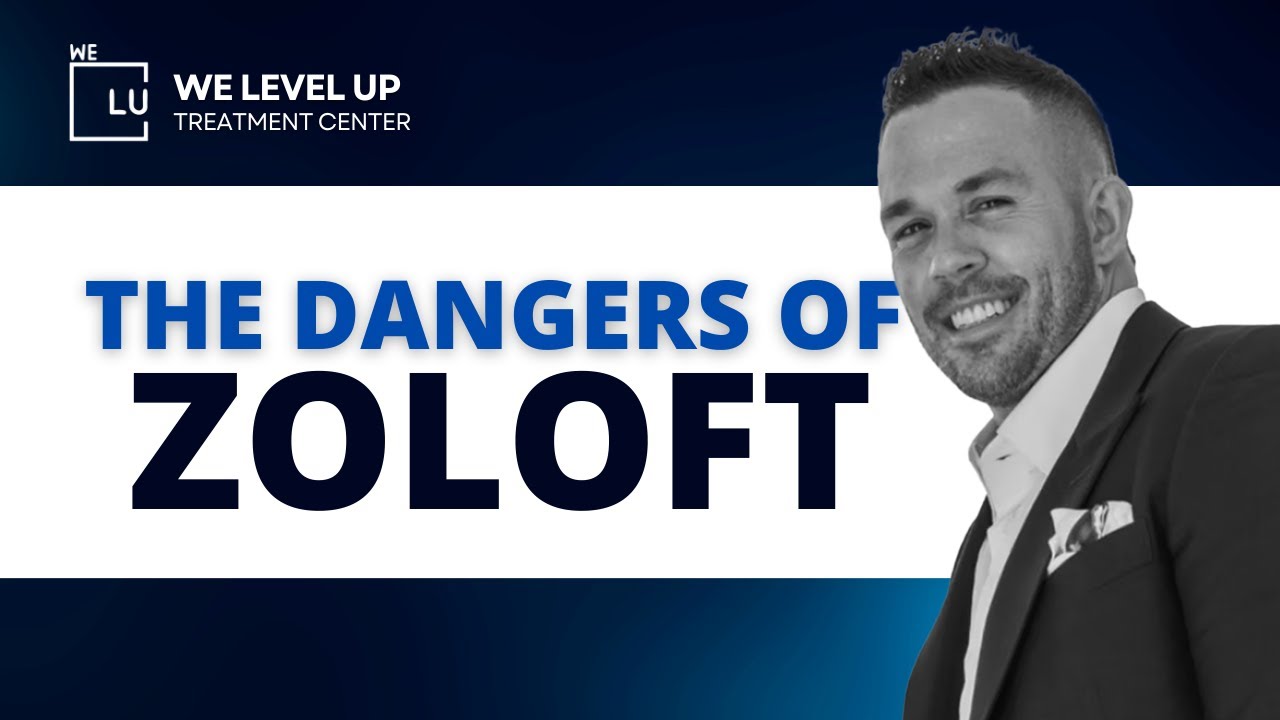What is Ketamine Withdrawal?
Although they might be uncomfortable, ketamine withdrawal symptoms are often not lethal. Ketamine withdrawal symptoms include agitation, cravings, and trouble focusing.
Getting medical attention while undergoing this process is highly recommended and crucial to avoid relapse.
Are you seeking ketamine detox near you? Get facts and resources about ketamine detox treatment at a local We Level Up detox center in Texas.
Ketamine Withdrawal Symptoms
Using an excessive amount of ketamine can swiftly cause psychological dependence. Addiction results from higher dosages and more recurring use of ketamine as your tolerance grows.
Most withdrawal symptoms go away after quitting in a few days, but some people experience them for weeks, which makes the process of detoxing from the drug more complicated. Some persons may feel inclined to take ketamine once again during this period in an attempt to relieve their suffering.
The most common symptoms of ketamine withdrawals are:
- Irritability.
- Cravings.
- Difficulty concentrating.
- Fatigue.
- Mood changes.
- Increased anxiety.
- Insomnia.
- Sweating.
- Shakiness.
- Nausea.
- Hallucinations.
- Changes in appetite.
- Muscle pain.
- Tremors.
- Rapid heartbeat.
- Restlessness.
- Vivid dreams or nightmares.
- Feeling emotionally flat.
- Social withdrawal.
How Long Do Ketamine Withdrawals Last?
Ketamine withdrawal symptoms might occur between 72 hours to several weeks. It usually takes 24 to 72 hours following the last dosage for symptoms to appear.
The following factors also determine the duration:
- Amount of drugs in the person’s body.
- The tolerance level of the user.
- How long have they been using the drug?
- Do they have also used other drugs?
Ketamine Withdrawal Timeline
The time it takes for ketamine withdrawal symptoms to appear varies, but they usually do so within 24 hours of discontinuing the drug.
| Time After Quitting | Ketamine Withdrawal Symptoms |
|---|---|
| 1-3 days | Irritability, Cravings, Difficulty Concentrating |
| 4-7 days | Fatigue, Changes in Mood, Increased Anxiety |
| 1-2 weeks | Insomnia, Sweating, Shakiness, Nausea |
| 2-4 weeks | Hallucinations, Changes in Appetite, Muscle Pain |
| 4-6 weeks | Tremors, Rapid Heartbeat, Restlessness |
| Beyond 6 weeks | Vivid Dreams or Nightmares, Feeling Emotionally Flat, Social Withdrawal, Suicidal Thoughts |

Ketamine Half-Life
Ketamine has a short half-life of 2 to 3 hours. However, ketamine and its metabolites can be detected in drug tests, with urine tests showing traces for 2 to 4 days.
Skip To:
Learn More:
Ketamine Detox
Ketamine detox is about letting your body clear the drug. It’s a challenging process where your body adjusts to not having ketamine. Though withdrawal can be difficult, remember it’s temporary. Stay determined, and you can manage cravings with motivation and let your body heal.
When considering a ketamine detox, we strongly advocate opting for a well-monitored and medically assisted environment. This ensures your safety and comfort as you navigate through the process.
Detox promotes healing in a safe, comfortable setting and provides resources for withdrawal that relieve negative symptoms. With a staff of trained practitioners and caretakers, We Level Up Texas rehab center offers a medical detox under the careful management of professionals.
Also, we work to maximize comfort, offering over-the-counter and prescriptions as needed, psychological care, and personal support to encourage abstinence from ketamine and other drugs, both today and for years to come.
If you’re seeking assistance with your rehab journey, reach out to a We Level Up Texas treatment professional today—your call is free and confidential.
Get Help. Get Better. Get Your Life Back.
Searching for Accredited Drug and Alcohol Rehab Centers Near You? We Level Up Texas Is Opening Soon!
Even if you have failed previously and relapsed, or are in the middle of a difficult crisis, we stand ready to support you. Our trusted behavioral health specialists will not give up on you. When you feel ready or just want someone to speak to about therapy alternatives to change your life call us. Even if we cannot assist you, we will lead you to wherever you can get support. There is no obligation. Call our network hotline today.
FREE Addiction Hotline – Call 24/7
Treatment for Ketamine Addiction
Ketamine addiction happens because it induces euphoria and alters perception; it also activates the brain’s reward system. Known as “K” or “Special K,” this drug can lead to tolerance, requiring higher doses for the same effects and increasing the risk of substance use disorder.
How to Detox from Ketamine?
As the first step in clearing the body of this potent drug, ketamine detox is a crucial stage in the treatment of ketamine addiction. The main objective is to provide safe withdrawal management, enabling users to overcome the physical difficulties associated with it. However, treating the psychological side of addiction is just as important, and this is where inpatient treatments are crucial.
In an organized, supportive atmosphere, people may assess the underlying causes of their substance use at inpatient treatment facilities. The comprehensive and science-based inpatient therapy approach includes counseling, behavioral treatment, and support group participation. This thorough approach addresses the acute challenges of detoxification while giving individuals access to the required resources.
Medical practitioners may use the proper medication to treat specific symptoms or co-occurring illnesses. Seeking advice from a medical expert is crucial to decide how best to treat withdrawal symptoms and encourage healing.
What About the Use of Ketamine for Opiate Withdrawal?
Opioids are good painkillers, but many patients treated with opioids as painkillers develop a secondary addiction. These patients need to stop misusing opioids, but the mild-to-severe clinical symptoms associated with opioid withdrawal risk increasing their existing pain. In such cases, ketamine, which anesthetists and pain physicians use to reduce opioid medication, may be an effective agent for managing opioid withdrawal.
Ketamine seems promising for addressing symptoms of opioid withdrawal. However, ketamine can also be addictive. While it has the potential for addiction, ketamine could still be considered as a possible medication to help manage opioid withdrawal.
According to the National Institutes of Health (NIH), Many clinical trials are still required to understand the mechanism of ketamine for addiction treatment fully. The FDA officially approves ketamine as a sole anesthetic during diagnostic and surgical procedures. However, it is not FDA-approved for treating any psychiatric disorders, despite some off-label use for conditions like depression and addiction. [1]
Opening Soon! First-Class Facilities & Amenities
World-Class High-Quality Addiction & Mental Health Rehabilitation Treatment
Coming Soon! Rehab Centers TourRenowned Addiction Centers. Serene Private Facilities. Inpatient Rehab Programs Vary.
FREE Addiction Hotline – Call 24/7Proven recovery success experience, backed by a Team with History of:
15+
Years of Unified Experience
100s
5-Star Reviews Across Our Centers
10K
Recovery Success Stories Across Our Network
- Low Patient to Therapist Ratio
- Onsite Medical Detox Center
- Comprehensive Dual-Diagnosis Treatment
- Complimentary Family & Alumni Programs
- Coaching, Recovery & Personal Development Events
We Level Up Texas Ketamine Detox Center
Ketamine detox demands careful consideration of risks and a professional support system. Attempting it at home lacks medical supervision, posing complications like relapse and psychological dangers such as severe depression or even suicidal thoughts. Managing withdrawal is challenging, with symptoms varying, and without professional support, the risk of overdose increases. Medical supervision during the ketamine detox process is crucial for a safer and more manageable experience.
While detoxing at a We Level Up Texas facility, you can also participate in on-site sessions like group therapy, seminars, and workshops, offering valuable insights into your addiction and long-term recovery strategies.
Following the completion of a ketamine detox at We Level Up Texas Addiction Treatment Center, several different treatment options help individuals struggling with addiction. Care can be provided on an inpatient and various levels of care. Your addiction treatment team will recommend levels of care depending on your current progress in recovery, your experience with addiction and recovery, your motivation, and your home situation.’
Discover professional help from We Level Up Texas’ addiction and mental health therapists. Start getting support with a free call to our addiction hotline.
Get a free rehab insurance check without any obligation.
Opening Soon! World-class, Accredited, Anticipated 5-Star Reviewed, Effective Addiction & Mental Health Programs. Complete Behavioral Health Inpatient Rehab, Detox plus Co-occuring Disorders Therapy.
FREE Addiction Hotline – Call 24/7End the Addiction Pain. End the Emotional Rollercoaster. Get Your Life Back. Start Drug, Alcohol & Dual Diagnosis Mental Health Treatment Now. Get Free No-obligation Guidance by Substance Abuse Specialists Who Understand Addiction & Mental Health Recovery & Know How to Help.
Prescription Drug Abuse Recovery and Sobriety Story — Testimonial Video
Start a New Life
Begin with a free call to an addiction & behavioral health treatment advisor. Learn more about our dual-diagnosis programs. The We Level Up treatment center network delivers recovery programs that vary by each treatment facility. Call to learn more.
- Personalized Care
- Caring Accountable Staff
- World-class Amenities
- Licensed & Accredited
- Renowned w/ 100s 5-Star Reviews
We’ll Call You
Search We Level Up Texas Ketamine Withdrawal Treatment, Mental Health Topics, and Resources
Sources
- Roxas N, Ahuja C, Isom J, Wilkinson ST, Capurso N. A Potential Case of Acute Ketamine Withdrawal: Clinical Implications for the Treatment of Refractory Depression. Am J Psychiatry. 2021 Jul;178(7):588-591. Doi: 10.1176/appi.ajp.2020.20101480. PMID: 34270337.
- Lin PC, Lane HY, Lin CH. Spontaneous Remission of Ketamine Withdrawal-Related Depression. Clin Neuropharmacol. 2016 Jan-Feb;39(1):51-2. Doi: 10.1097/WNF.0000000000000121. PMID: 26757313.
- FDA warns patients and health care providers about potential risks associated with compounded ketamine products, including oral formulations, for the treatment of psychiatric disorders – Food and Drug Administration (FDA)
- Rosenbaum SB, Gupta V, Patel P, et al. Ketamine. [Updated 2023 May 26]. In: StatPearls [Internet]. Treasure Island (FL): StatPearls Publishing; 2023 Jan-. Available from: https://www.ncbi.nlm.nih.gov/books/NBK470357/
- Ivan Ezquerra-Romano I, Lawn W, Krupitsky E, Morgan CJA. Ketamine for the treatment of addiction: Evidence and potential mechanisms. Neuropharmacology. 2018 Nov;142:72-82. Doi: 10.1016/j.neuropharm.2018.01.017. Epub 2018 Jan 12. PMID: 29339294.
- Liu Y, Lin D, Wu B, Zhou W. Ketamine abuse potential and use disorder. Brain Res Bull. 2016 Sep;126(Pt 1):68-73. Doi: 10.1016/j.brainresbull.2016.05.016. Epub 2016 May 31. PMID: 27261367.
- Le TT, Cordero IP, Jawad MY, Swainson J, Di Vincenzo JD, Jaberi S, Phan L, Lui LMW, Ho R, Rosenblat JD, McIntyre RS. The abuse liability of ketamine: A scoping review of preclinical and clinical studies. J Psychiatr Res. 2022 Jul;151:476-496. Doi: 10.1016/j.jpsychires.2022.04.035. Epub 2022 May 10. PMID: 35623124.
- Yavi M, Lee H, Henter ID, Park LT, Zarate CA Jr. Ketamine treatment for depression: a review. Discov Ment Health. 2022;2(1):9. Doi: 10.1007/s44192-022-00012-3. Epub 2022 Apr 15. PMID: 35509843; PMCID: PMC9010394.
- Mandal S, Sinha VK, Goyal N. Efficacy of ketamine therapy in the treatment of depression. Indian J Psychiatry. 2019 Sep-Oct;61(5):480-485. Doi: 10.4103/psychiatry.IndianJPsychiatry_484_18. PMID: 31579184; PMCID: PMC6767816.
- Drug Fact Sheet: Ketamine – Drug Enforcement Administration (DEA)
- Ketamine Fast Facts – Department of Justice (.gov)







